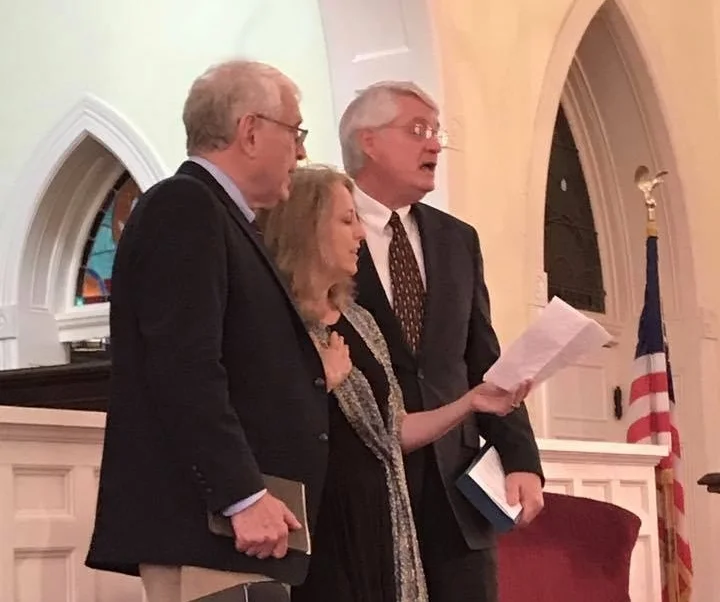Music in Times of Sorrow and Loss
My beloved grandmother (Mildred Coit Oates Zimmer) died this past spring. Born in South Korea, the daughter of missionary parents, she spent most of her life in Eastern Tennessee—Sweetwater—where over 80 of her direct descendants recently gathered to celebrate her life.
Nana's great-grandchildren singing "Shall We Gather at the River" graveside in Sweetwater, TN
Nana (my sister’s and my nickname for her) and I shared a love of music. My grandfather was a professional singer before deciding the life of an opera singer was not for him. Throughout most of his life he sang for church events—frequently joined by my grandmother. I loved seeing them stand before a crowd to sing the old hymns.
Although Nana had dementia in her final years, when I last visited her and sang some old hymns to her, she joined right in. She did not know who she was or any of her family in those last years, but she remembered the words to songs.
Ani Patel of The Neurosciences Institute in San Diego thinks the origins of human language came through song: "'We feel music just taps into this kind of pre-cognitive archaic part of ourselves,' he says. So it seems to make sense that music came 'before we had this complicated articulate language that we use to do abstract thinking.'"
Whether that hypothesis is ever proven, I agree that music reaches something in us beyond thought or even emotion. I am forgetful—often not able to remember important events or people or places.But I am sure that no matter how old I get I will probably, unfortunately, still be able to sing the grade school song about counties in SC, commercial jingles or the theme to "The Brady Bunch." I hope I'll also remember lyrics to my favorite songs I love as I age. Whether singing or listening—many of the songs I have loved over the years are songs that connect me to myself or to other people. The songs bring me comfort like few other things do.
May your heart be comforted by music as it has comforted my grandmother, my family, and me.
Singing "I'll Fly Away" with my Dad (Jack, on left) and Uncle Rob at Nana's service.



